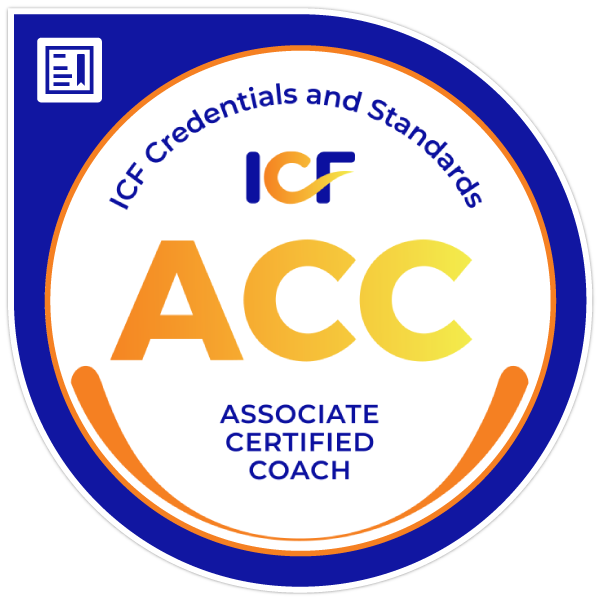In the world of female leadership, Impostor Syndrome is a silent enemy that affects many women. Since psychologists Pauline Clance and Suzanne Imes created the impostor syndrome in 1970, it has become clear that even the most competent leaders can fall victim to this phenomenon, feeling unworthy of their success and fearing being “discovered” as frauds. As a woman in a leadership position, you must recognize and face this challenge to protect your self-confidence and ensure you lead your personal and professional life with authenticity and security.
So, I begin by asking you: ⇒ How often do you feel like you don’t belong, don’t deserve that recognition, or are unqualified for that new challenge?
Impostor Syndrome can manifest more often than we realize, especially during periods of transition, high stress, or when we take on new responsibilities. It may also appear when we face tasks outside our comfort zone or when highly successful colleagues surround us.
But here’s the interesting part: what was initially thought to affect women primarily has now been proven to be common among men and people of all ages and professions. Unfortunately, no one seems to be immune to experiencing this Syndrome at some point in their life.
A recent Korn Ferry study revealed that senior leadership, including CEOs (71%) and other senior executives (65%), struggle with feelings of doubt at work. Impostor Syndrome is a reality that does not discriminate, affecting people at all levels of success and achievement.
However, I often wonder why people talk about Impostor Syndrome so casually, as if it’s a common cold, or worse, as if it’s an immutable human condition.
Being aware of the impact of Impostor Syndrome is crucial because it can erode self-confidence, causing one to question one’s worth, relationships, decisions, and achievements.
In my coaching sessions and workshops, I frequently hear phrases like: “Yes, I’m suffering from Impostor Syndrome, and that’s why I haven’t dared to…” But it’s not just the verb “dare” that limits us—it’s many other actions we stop taking, feeling trapped or paralyzed by that inner voice of Impostor Syndrome. Voices that say, for example:
- “I’m not going to apply for that position.”
- “I don’t deserve that recognition…”
- “I’m not good enough for…”
- “I still have so much to learn to…”
- “I’d better gain more experience while…”
- “I shouldn’t celebrate this…”
- “I don’t think I did anything extraordinary to deserve…”
- “I’m not ready for…”
And so the list goes on. So, what do we do? Do we stay stuck, as if condemned for life?
As you read this, you may think: “Well, it’s not that serious; these thoughts only come up sometimes.” So, let me ask you: How aware are you of the impact of Impostor Syndrome on you?

The answers may not come as quickly as you’d like, and that’s okay. What’s important is to start reflecting on how often these thoughts, emotions, and feelings arise in you. Being aware of the impact of Impostor Syndrome is crucial because it can erode your self-confidence, causing you to question your worth, relationships, decisions, and achievements. It can also have many adverse effects, impacting your emotional well-being and professional development.
Yes, that’s right! According to the article Prevalence, Predictor, and Treatment of Impostor Syndrome: A Systematic Review (2019), some of the primary effects of Impostor Syndrome include:
- Low self-confidence: People often feel incompetent, and despite their achievements, they may doubt their skills, strengths, and talents, attributing their success to external factors like luck.
- Anxiety and stress: The constant fear of being “exposed” as a fraud can lead to elevated levels of anxiety and stress, resulting in burnout and negatively affecting mental health.
- Procrastination and perfectionism: Some people may procrastinate as a way to avoid judgment, while others may become perfectionists, excessively reviewing their work to prevent errors that might “reveal” their supposed incompetence.
- Professional stagnation: Impostor Syndrome can prevent people from seizing new opportunities or taking on leadership roles. The fear of not being up to par may make them avoid applying for promotions or taking on challenging projects, thus limiting their professional growth.
- Interpersonal relationship issues can also affect how you relate to friends, colleagues, and superiors. You may be reluctant to collaborate or ask for help, thinking it might expose your perceived deficiencies.
- Depressive symptoms: In severe cases, the combination of low self-esteem, anxiety, and prolonged stress can contribute to the development of depressive symptoms.
As you can see, it’s no wonder that we should take Impostor Syndrome seriously, as it can limit your ability to lead with confidence and authenticity.
But I have good news: It’s time to reduce its power over you!
Here are my strategies for silencing the voice of Impostor Syndrome:
⇒ Become Fully Aware of Your Emotions
The first step is to be aware of when and why that critical voice appears. Identify the situations that trigger those thoughts: Is it when you face a new challenge, receive praise, or compare yourself to others? Recognizing these emotions—whether fear, shame, or insecurity—allows you to understand the origin of that judging voice and prepares you to address it with greater clarity.
⇒ Strengthen Your Self-Esteem Through Internal Reconnection
It’s essential to link your external success with your self-perception of value. It’s not enough to achieve goals; you must allow yourself to internalize those accomplishments. Remember that every success reflects your effort, talent, and dedication. By strengthening this connection, you see your achievements as an integral part of your identity, not as isolated events.
⇒ Recognize and Celebrate Your Unique Talents
List your strengths and talents—the aspects that make you unique. Do this regularly and review it every time Impostor Syndrome tries to undermine your confidence. This exercise helps you strengthen your self-confidence and maintain perspective on everything you contribute—not just to your work but also to your relationships and yourself.
⇒ Practice Gratitude as a Daily Habit
Gratitude is a powerful tool to counteract negativity. By focusing on what you have accomplished, you shift the focus from “missing” to what’s already abundant in your life. Every morning, start by being grateful for three things that make you feel fulfilled and satisfied.
⇒ Accept Your Areas for Improvement with Compassion
Acknowledging that you have areas for growth doesn’t mean you’re insufficient. On the contrary, this acceptance is a sign of maturity, self-awareness, and, most importantly, self-love. Instead of viewing it as a weakness, understand that continuous improvement and learning are part of your personal and professional evolution.
⇒ Consider Seeking Professional Help
Sometimes, overcoming Impostor Syndrome requires more than reading books or listening to podcasts; it needs more profound internal work. Seeking help from a specialized coach or therapist can be a decisive step toward healing and strengthening your self-esteem and self-confidence. Don’t underestimate the power of having someone guide you on this path—it’s an investment in yourself and your future.
Lastly, I invite you to watch this video to learn more about my strategies for silencing Impostor Syndrome:
And remember, overcoming this Syndrome doesn’t happen overnight. It’s a process that requires patience, practice, compassion, and self-love.
You’re not alone on this journey; every step you take forward is a testament to your strength and determination.
Keep going because you’re worth it!



